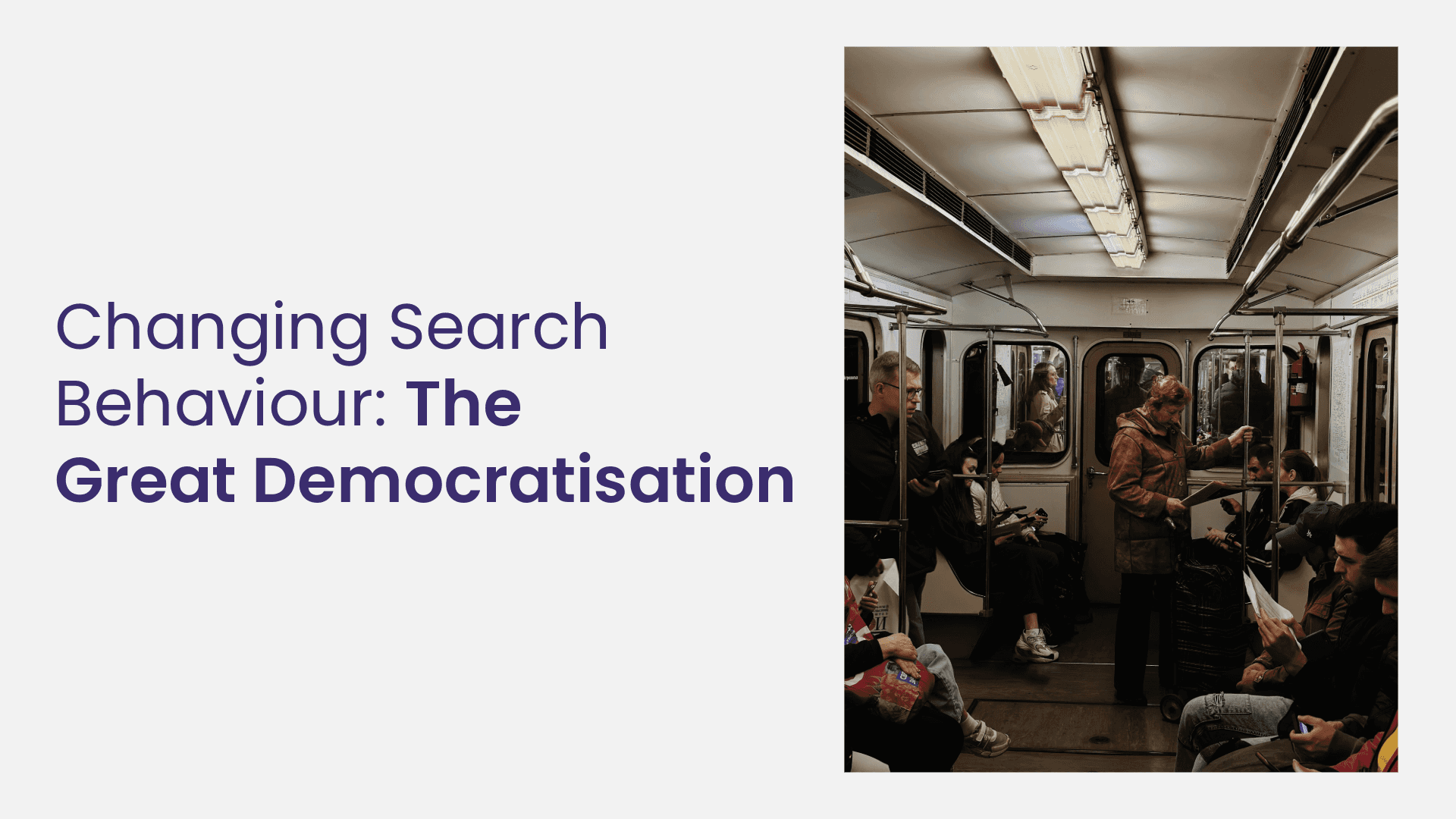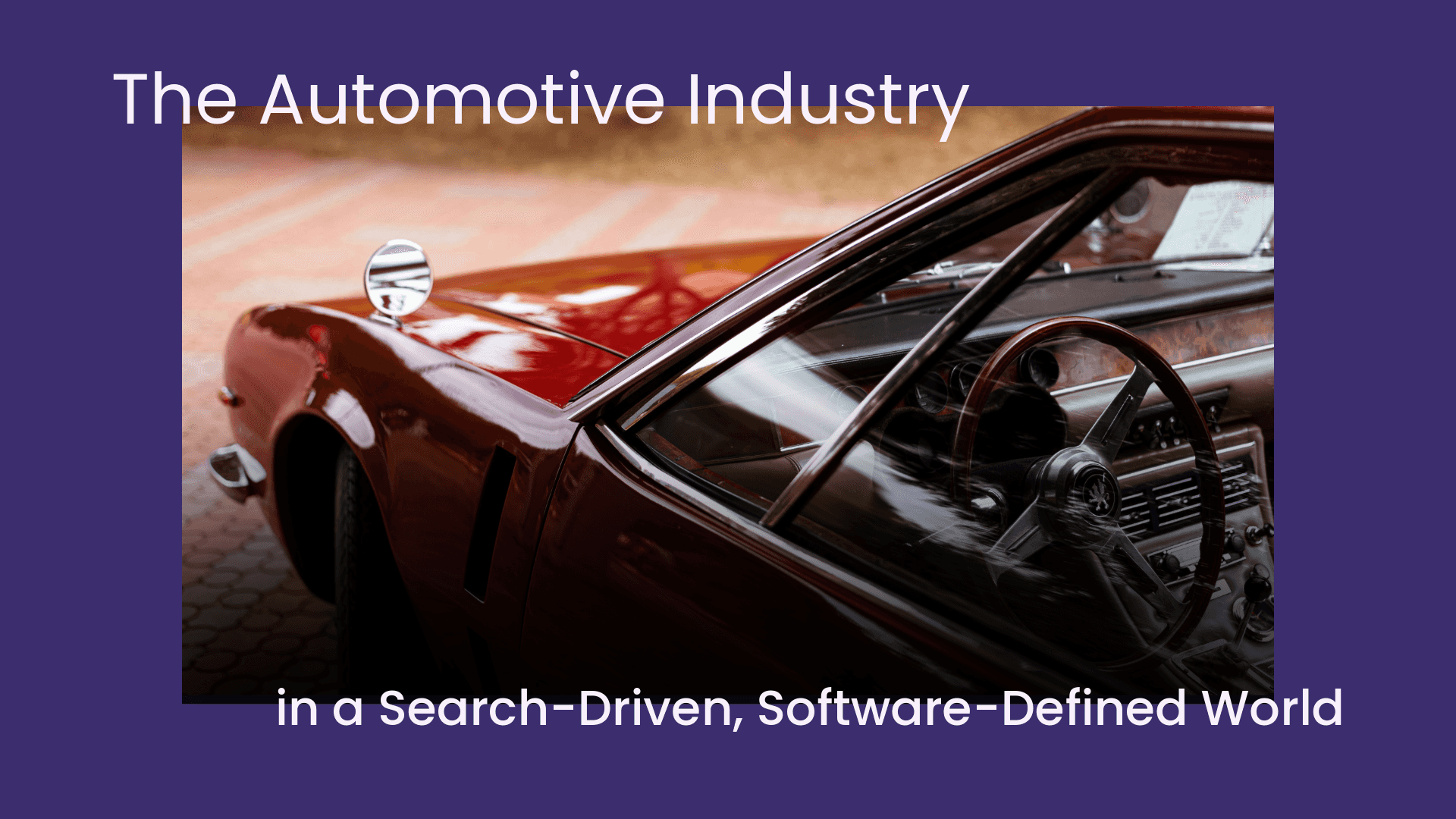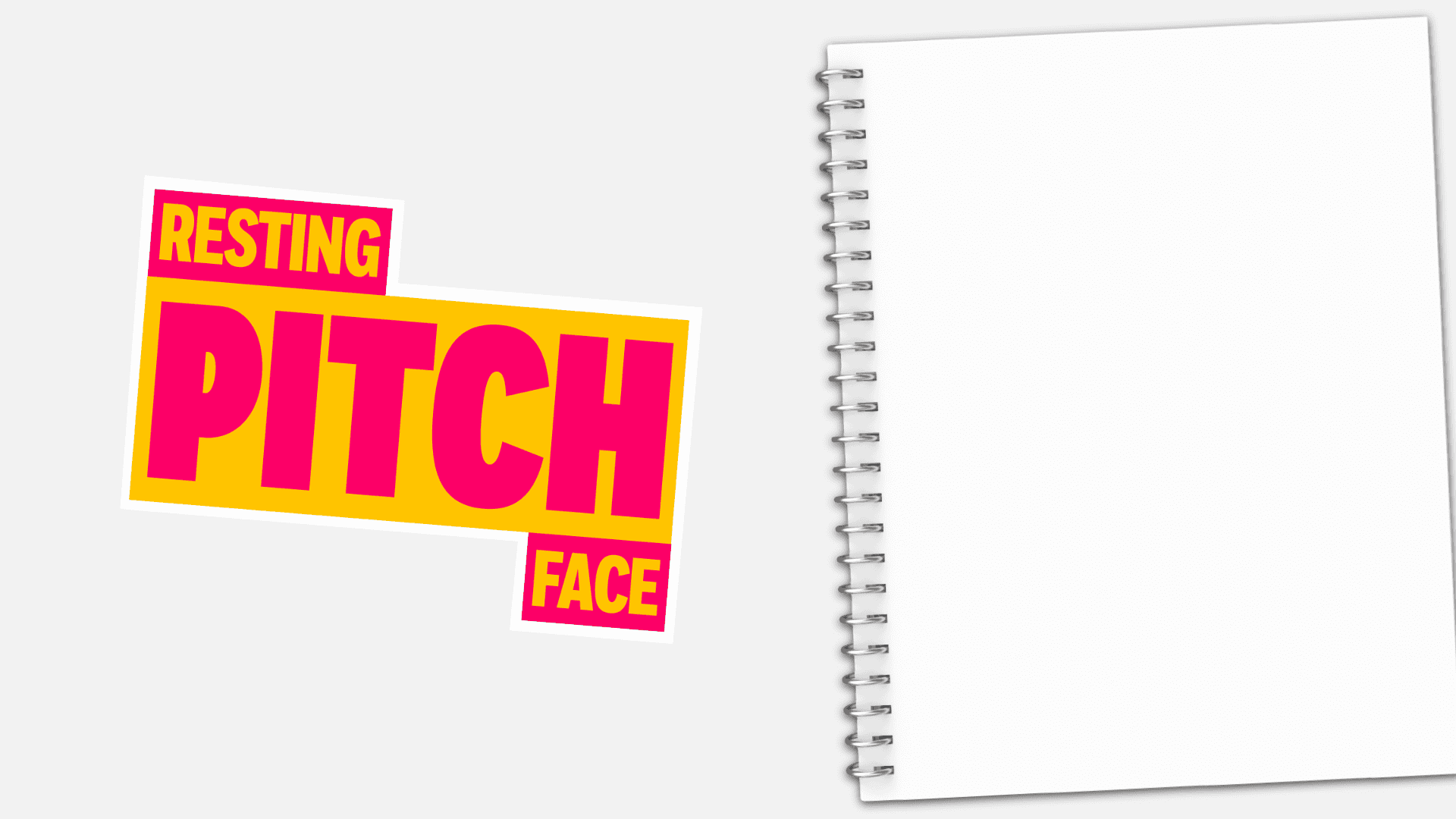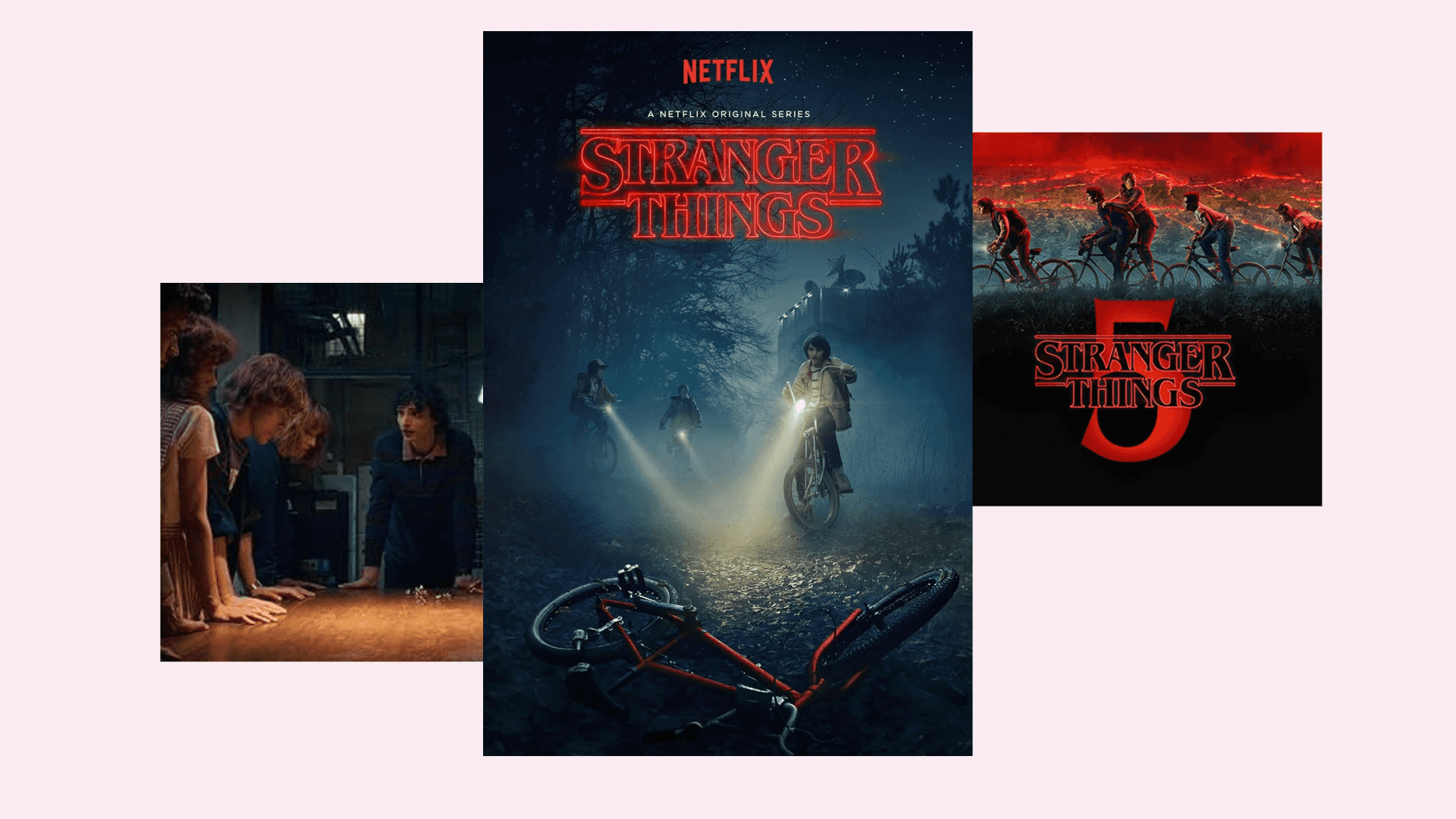
B2B vs B2C: What Marketers Can Learn from Both
Written by Lee
B2B and B2C: how different are they really?
In this episode of Resting Pitch Face, Dan and Lee chat about the differences and similarities between B2B and B2C businesses – from marketing to consumers, customer journeys and more.
Should B2B really be versus B2C, or do they have more similarities than it first may seem?
Listen on Spotify or Apple Podcasts or subscribe to our YouTube channel for weekly episodes.
See below for the full transcript of episode 59.
Transcript
Dan
B2B. I’m going to put in here versus B2C, but that’s the whole point of today’s discussion.
So B2B, B2C – obviously, Flaunt, talking from a marketing perspective – can be from an e-comm perspective, but generally speaking, it’s always been an us versus them.
It’s always been a B2B versus a B2C thing. Lots of discussion around how they’re so different and blah blah, blah, blah, blah. So the versus has always been in the middle of B2B and B2C when people have talked about different approaches, given different assignments and objectives from a marketing perspective.
Firstly and very simply, do you agree that there are so many differences in – I’ll keep it general – so many differences between B2B and B2C from a marketing perspective, that in between B2B and B2C is a versus, or should it be and should it be “and,” should it be, ”or,” or what?
Lee
I think it should be, “client.”
Dan
Oof – Yeah. As an objective.
Lee
I mean, B2B and B2C yeah, fine. Does it matter? No.
Dan
End of episode. Yeah. I mean, it’s one of these things like we’ve talked about in PR and digital PR versus traditional PR, and we end up saying the line between the two is so blurred, like, are we not ultimately just talking about, I mean, when I’m going back to B2B and B2C or B2B versus B2C, we’re not ultimately just talking about the sort of user or the consumer at the end of the line being human.
Why is B2B and how is B2B not so human? And that’s – there’s again, the big thing at the moment about marketing in B2B is, so stale and non-human, and non-personable like, why? You’ve still got human consumerism. I’m not sure about that word if you’re watching
Lee
Perception. Yeah, I know what you’re trying to get at. I think that my view on it is like I think B2C clients are the fame clients, are the sexy clients because they’re either trying to be well-known or are well-known.
But from a marketer’s perspective, I believe the capability to move needles for B2B is much, much greater.
Dan
What sort of things have you observed in your experience that, qualify that, what have you, I mean, you’ve done plenty of B2B, we’re a B2B ourselves. But, yeah, how do you what do you, what examples can you give that use that, that justify that and qualify that sentiment that the needle movers.
Lee
Well, to give an example, drawing from experience – manufacturing, boring on the face of it.
Dan
Yeah.
Lee
Hard to be invigorated. However, it’s quite an old-school sector so the capability to innovate: easier and the speed at which big businesses in that sector have adopted digital is behind the curve generally, I would say.
So that means that if a big B2B manufacturing has had the thought and the foresight to think, right, we need to improve our digital, that gives you such a good opportunity to be out in front, that in terms of like delivering results in the sector that isn’t really done too much either, isn’t known for that – it’s a great opportunity.
Dan
Yeah. It feels like if you describe it in another way that we’re all familiar with, it almost feels less saturated, doesn’t it? i.e. opportunity headroom
Lee
Yeah, but the other thing that underpins big B2B is generally – the brand is strong.
Dan
I was just about to ask you – part two of this. Where does brand fit into this, do you think?
Lee
Well, I think being a small let’s take fashion as a B2C sector example. Being an independent startup, new fashion brand is like overwhelmingly saturated, so you have to do good, intense and frequent marketing.
Dan
I thought you were going to say freak marketing. Well freak level.
Lee
I mean – yeah. It could be described as that I guess as a, certainly from digital PR to get to get the results, whereas someone in manufacturing that’s been going for a while, that has a hold in the industry, which generally happens I think with B2B, it seems to be scaled businesses – certainly the ones that we engage with. The brand that comes with them in that sector is strong because they will generally specialize in something and they will own that space, or there will be a handful of people that own that space.
So their share is – there’s five big players that do that one thing.
Dan
Yeah.
Lee
Fashion. There’s 3,000,006 that do the same products with a different brand. So that becomes a completely different challenge in a saturated market.
Dan
Yeah
Lee
Both are both very exciting in terms of marketing and both present different opportunities. But I think the stigma that surrounds B2B needs challenging.
Dan
Yeah, I think it is being challenged. If you think about five years ago. That’s why I refer to that blurred line. What do you think about like, you know, it’s almost like that open goal sort of is open question really in it like Hollywood brands, who do you think of why people go
Lee
Apple, Tesla.
Dan
Why do they go to those? Because it’s really hard to ignore brand, firstly, brand investment.
Lee
Because they’re the consumer.
Dan
Yeah. So what does it what do you think it takes – Will it ever get to this point where if that open question was asked of marketers, non-marketers, you know, who would you love to work with? For example, if you’re asking non-marketers who are the biggest brands in the world, it’s predominantly going to be consumer brands.
Lee
Yeah. I can tell you what people’s top five would be, consumer brands.
Dan
What’s it going to take? Will it ever get there where a B2B brand – why has IBM gone.
Lee
They’re about – Nvidia is probably a good example, but I think tech is a different beast, because tech is sexy for business to business. Take tech versus, I dunno, steel.
Dan
Yeah, and you’re right – innovation. We can’t ignore innovation or lack of, but yeah it’s just an interesting exercise in B2B versus B2C. And you hit the nail on the head with the word, “stigma.” I do think it’s improving, but ultimately, as I went back to when you think of the human at the end of it, you are still communicating or trying to evoke a response or an action out of a human, even a B2B “transaction.” That’s still human to human, ultimately.
Lee
It is, it’s just the journey is completely different.
Dan
Of course. Yeah, yeah.
Lee
I would say generally the commitment from that end user is on a different scale, so yeah, it’s a lot different in terms of the attack. But I think from a marketer’s perspective like I’d be, I’d be hard-pushed to pick by preference, a sector to live in. Like if you said you can only do B2B or B2C I’d be like, “oh I like doing both,” but I don’t think I could pick one because my validation brain is like, well, B2B, you can move fucking mountains in B2B, whereas gains sometimes a little bit more incremental in other sectors that are B2C.
Dan
Yeah. It’s interesting that. I certainly come from a biased point, but with my career to date, I’ve been predominantly in marketing and/or sales B2B. So, I’m actually, I’m a tight arse, so as a consumer yeah. I’m not, there are exceptions to the rules aren’t there, and I’m probably one of them, but I’m immediately drawn to B2B, but it’s where my experience has been. Do you think there are, do you think there’s such a line between the two that, certain almost like creative thinking, disciplines wise, can’t be taken from those more traditional, let’s say, B2C marketing efforts, campaigns, strategies that just absolutely won’t work in a B2B setting or can’t work in a B2B setting.
Lee
So here’s where I think that gets interesting because I think B2B businesses that act like B2C businesses are the ones that do marketing well.
Dan
Now, do you think they’re predominantly tech or not? Sorry. Does your mind immediately think of tech businesses when you’re thinking what you’ve just said there, or do you think of a mixed bag in B2B?
Lee
Yeah, tech is an easy one to draw example from, but I think there are B2B brands that behave like B2C brands that do it well in terms of like concepts and getting campaigns to resonate, because I think that, going back to what you said, it’s like – there’s a human at the end of it. I think a lot of opinions around B2B is that they’ren ot human.
Dan
Yeah. I don’t know why that’s ever been lost, really. I don’t know why it’s been separated from…yeah I get it: decisions, the consideration phase, can look enormously different. Often looks enormously different to a consumer decision. Granted, there’s scale of consumer decisions isn’t there – price point, for example. That said, I do think that this line between B2B and B2C, both from things that we’ve talked about, the sort of consumer or the user side of it, the decision-making process, the marketing campaign input into B2B and B2C – it’s certainly is as blurred as it ever has been. And I think that’s a positive and it’s exciting. We’ve talked about the opportunity and the excitement side of it. The more it gets blurred, the more the sort of early adoption of thinking like a consumer brand can be executed, I feel.
Lee
Yeah, I always find it interesting when you get a brand that straddles both.
Dan
Yeah.
Lee
Like telecoms, for example, Three,, who target consumers but also have business. They do it well.
Dan
Yeah.
Lee
But they keep the thread they just change the scenario behind it and that would be a good example of it. I think there’s a campaign running at the moment that they’ve got and it’s really good marketing, they’re showing scenarios like – thinking of one off the top of my head, it’s like a kitchen scene with a load of mums in middle at night.
Dan
I’ve seen it. It’s cracking is that.
Lee
Phenomenal, phenomenal advert – well-executed. And they do the same sort of approach but business scenario-based. And I think that’s a really good example of someone that straddles both. And I find that really interesting. And I wonder if it’s the same people that skew it in both sides of their campaigns.
Dan
Not to dumb it down, but it feels a bit templated, but in a positive way. Yeah, that’s it for me. Short and sweet episode for B2B versus B2C. But I think I’ve got some This or That’s.
Dan
So obviously the This or That, that is coming first – B2B or B2C.
Lee
Do I have to pick?
Dan
I haven’t written these. Yeah, you have.
Lee
I have to pick one.
Dan
Gun to your head.
Lee
Do I get to decide which B2Cs?
Dan
No
Lee
B2B then.
Dan
I’m with you. Car or Train?
Lee
Am I driving?
Dan
Both. Yeah, you’re driving.
Lee
Car.
Dan
Yeah. Cultural Fit or Experience Fit?
Lee
Culture add.
Dan
Boom. Gig or Theater? I’m guessing that’s like a music gig.
Lee
Oh, that’s a fucking hard one.
Dan
And theater could be anything.
Lee
I like both, you know – different kind of vibe. Gig at a push, probably, but I do like a show.
Dan
Yeah. Final one Beach or Mountain?
Lee
Mountains. I’m not very good at sitting still.
Dan
I’m with you.
Lee
Nice.





